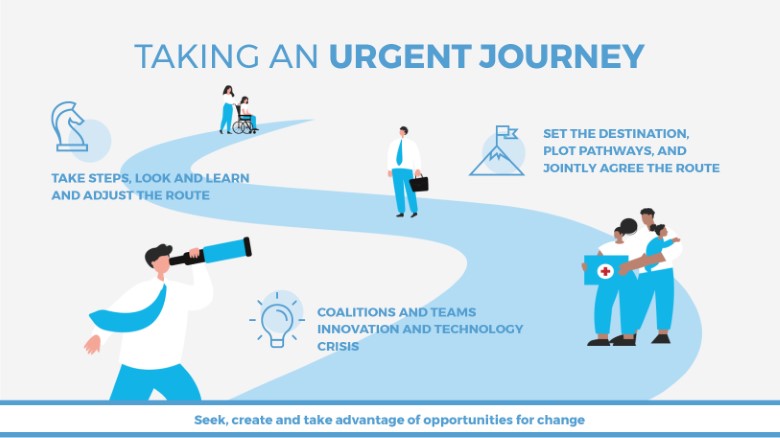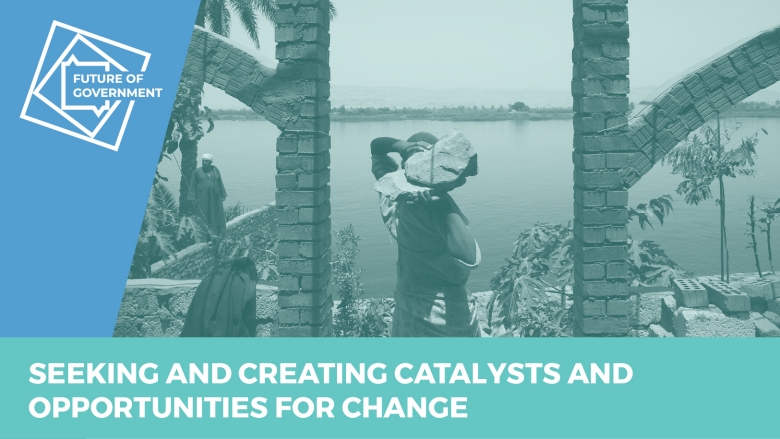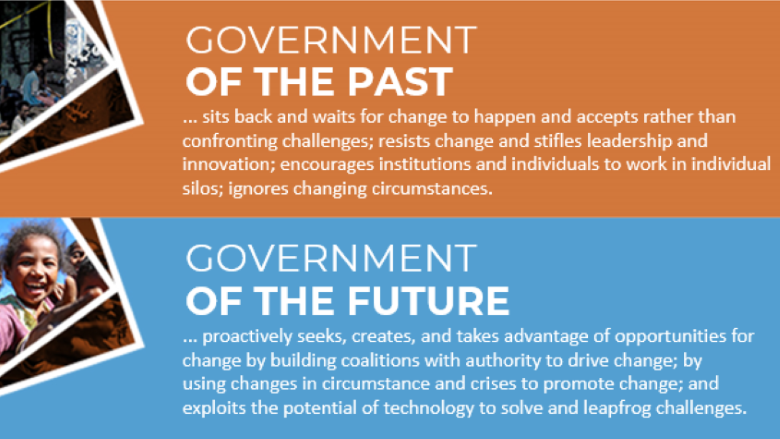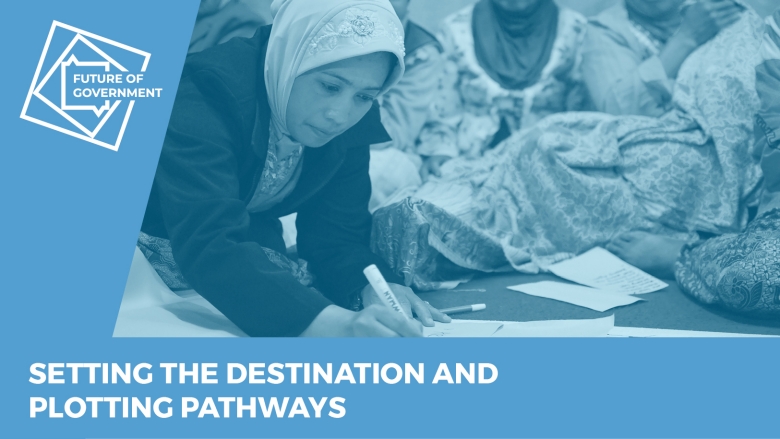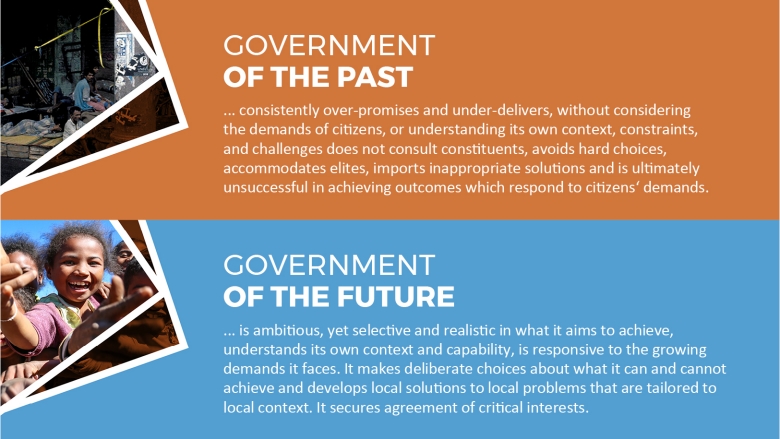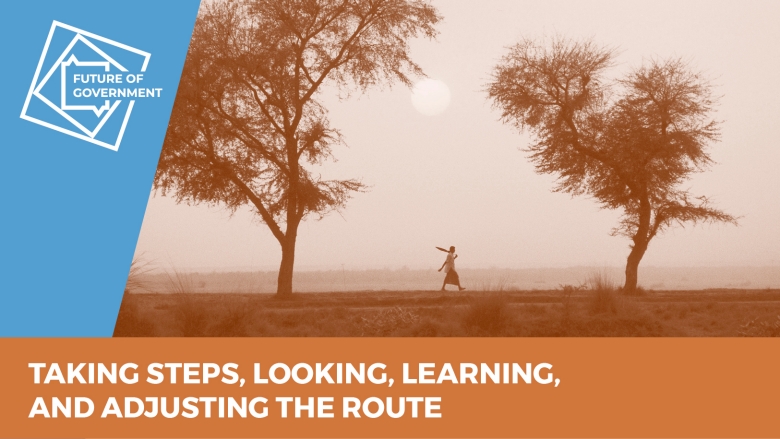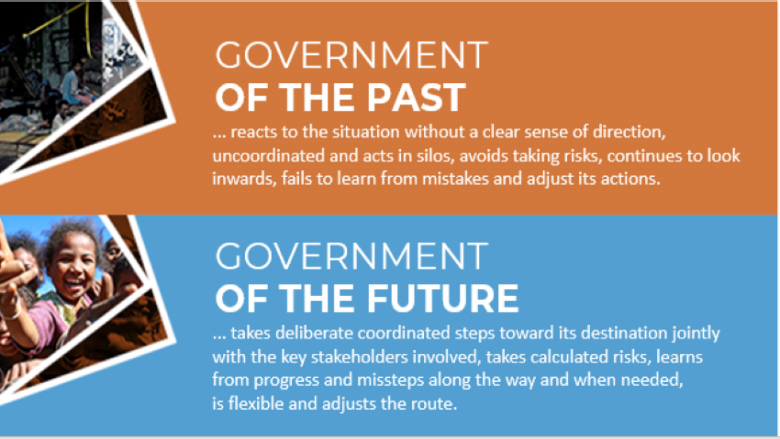The 21st century has witnessed man-made crises, such as climate change and financial instability, and natural crises, such as COVID-19 and tsunamis. Ageing populations, growing inequality and evolving social norms are gradually affecting how societies are structured and how citizens view the social contract. In addition, there have been remarkable innovations in the public sector and great technological leaps in the private sector. With the presence of good leadership, capable teams and broad coalitions, these crises, evolutions and innovations provide opportunities to be catalysts for positive change.
The
Governments of the Future might embark on a three-stage process for plotting feasible pathways to deliver developmental change that can be useful for government policymakers, regulators and providers in different spaces, and those seeking to influence them. The three stages are:
• to identify and prioritize a limited number of critical policy problems from the plethora of demands and challenges it faces, careful to distinguish needs from wants;
• to investigate the policy priorities, understanding the underlying sources of the related needs and the causes of the challenges and the stakeholders involved;
• to set a destination that solves each policy problem and plotting a pathway to reach that destination.
Conundrums and Choices
